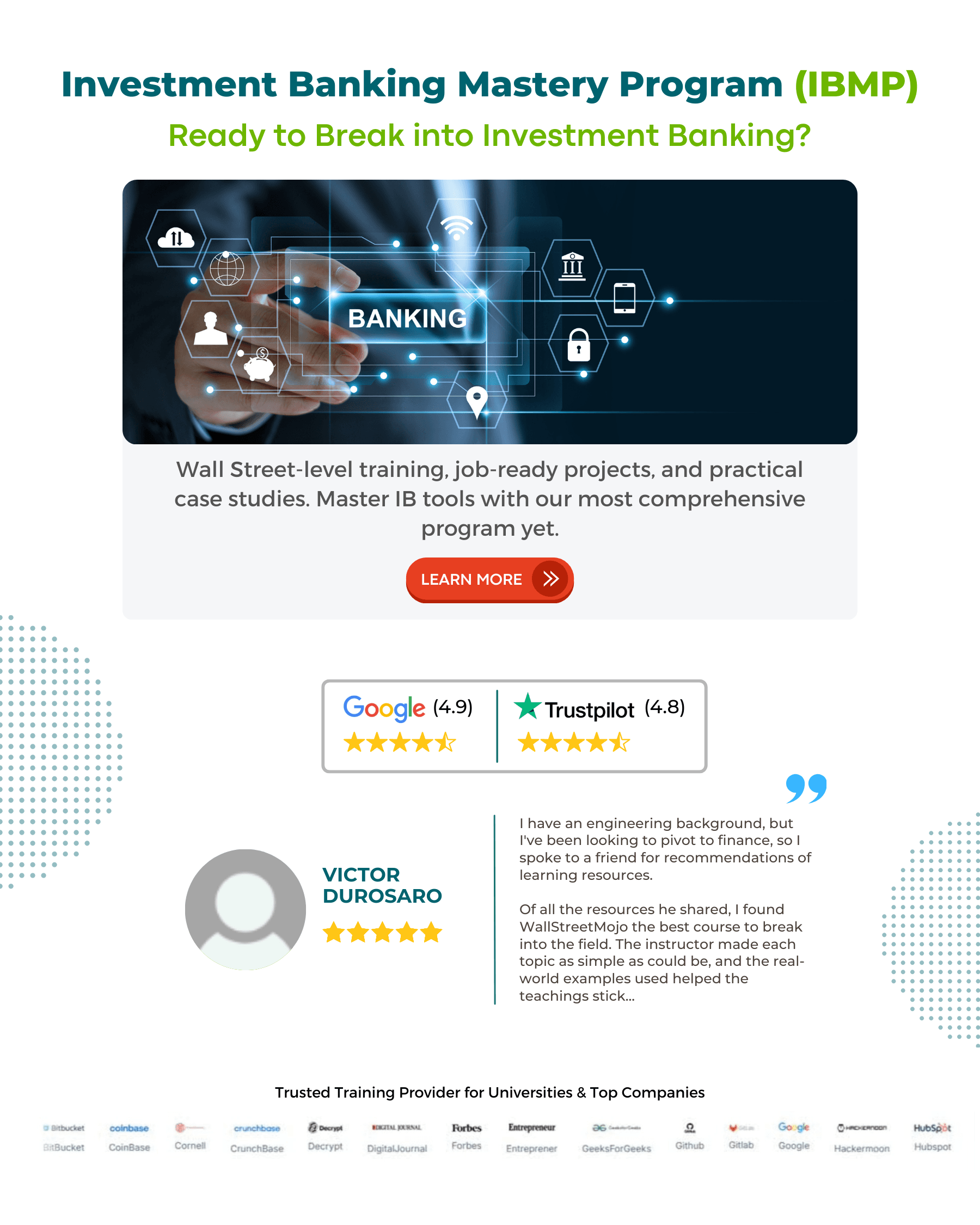Table Of Contents
How to take the leap from investment banking to other career options?
So you can see that there are many options you can choose if you no longer want to continue as an investment banker. But how would you leap? How would you know what the right option for you is?
Here’s how.
You need to find your “why”.
Before you ever decide to quit investment banking, you need to ask yourself – “why has it become unbearable to me?” and ask yourself “why?” until you get the right reason.
Your reason may be very hectic work hours for which you’re not able to spend time with your near and dear ones.
Or maybe you are not enjoying running after every deal that you can get.
Or just maybe you know that something else (let’s say research) is more important to you than being on the business side.
The reason can be anything, but make sure that the reason is yours to begin with. For example, you may get inspired by your peer group to leave the job (if a few people are leaving investment banking for some reason), but ask yourself – “Is that your reason?” If not, then don’t quit. Instead, ponder. Justify leaving investment banking and doing something else first. And then you can do what seems justified.
Once you know your “why”, it’s time to decide how would take that leap? The best way is to continue as an investment banker and find out a few hours a week to learn about your new career choice.
Let’s say you want to go into equity research because you find you’re the perfect match for the “research” profile. But do you know exactly what’s going on in “research”? The easiest way to find out is to ask someone in the “research” profile which has always worked in your bank.
Ask about the hours, the work, the pressure, the work-life balance and if possible spend some time a few days a week watch how s/he has been doing work.
Once you get an idea, you will know whether that is a better option for you than investment banking or not.
The next thing you must do is see how much the next career move would help you in your career. Would it add value to your profile? Would it be progressive for your career shortly? For example, let’s say you decide to do an MBA from a top-notch institute. Ask the pass-outs about the opportunities after the MBA. Ask them whether the MBA from this institute will add value? If not, find something else or continue doing what you’re doing till you get a better opportunity.
To take the leap you need to make sure that the move is well-thought after and won’t put you in a complete disaster.
Video Explanation of Careers in Investment Banking
In the final analysis
Investment banking has many roles, and many people work in investment banking. Depending on the role you’re currently in and the years of experience you have, you need to decide the right option.
If you are an MD of the investment bank, consider starting your own business or fund because moving into a different industry may be pretty hard. But if you are a mid-level banker, you may join a corporation where you can act as an advisor.
Choose wisely because the Investment Banking exit should always be a new beginning!

